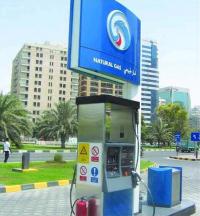United Arab Emirates: April 1 2010 deadline to sell oil in litres
- Metric Tags:
By Karen Remo-Listana
Petrol stations in the UAE are given until April 1 to comply with the government directive to sell fuel by the litre instead of gallon as a unit of measurement.
"January is the starting point and they are given four months to make the shift," Dr Rashid Ahmad bin Fahad, Chairman of Emirates Authority for Standardisation and Metrology, (Esma) told Emirates Business. "They should be able to do it before April 1. Four months is more than a reasonable period of time."
But should there be any delays on compliance, no penalty shall be imposed, he said adding that all oil companies operating in the country will as of January 1 gradually start replacing their dispenser gauges used in the service station from imperial gallon to litre.
The gradual transition would take about four months in order to implement the UAE Cabinet Decision No 270/3 for 2009.
The new system will not change the prices of petrol or diesel. Imperial gallon is equal to 4.546 litres.
"The change is in accordance with the requirement of WTO to eliminate the technical barrier to trade to facilitate the flow of goods and commodities across the globe," he said.
Fahad, also the Minister of Environment and Water, said all preparations have been completed in order to start the implementation of using the international system of unit (SI) instead of the imperial unit.
The three main oil companies – Adnoc, Enoc and Emarat – have already pledged to convert the units over the next three months hence the process is expected to be completed even before April, said Mohamed Saleh Badri, Acting Director-General of Esma.
This newspaper earlier reported that Adnoc said it will have all its service stations converted for selling fuel by litre by the end of the first quarter of 2010.
Badri said oil companies have responded positively to the directive despite the financial cost that it entails.
It is estimated that oil firms had to shell out Dh120-Dh150 million in this conversion programme.
"As per what the minister said, each gauge costs about Dh50,000," Badri said. "We have right now around 450 stations and we're talking an average of five to six gauges per station.
"They have to bear a lot of cost to change the system, it's not cheap but they have agreed to that," he said. "Unification is agreed and implementation of that has already been started."
Once all the gauges are changed, Esma will begin to monitor them.
Badri said there are possibilities of variations in pumping gauges but the magnitude of inconsistency is difficult to detect due to the absence of data.
"You may notice that there are differences but you will be saying – maybe it is my car but it may not – it may be the gauge."
The petrol conversion is the first of the many steps in consolidating all units of measurement used in the country to harmonise its system with the rest of the world. The second step will be the conversion of units of measurements in length as yard and foot shall be replaced with meter.
Badri said Esma plans to build a UAE infrastructure that is as per international best practice and is fulfilling WTO requirement.
He said using different units of measurement was due to the absence of national regulation to mandate the use of SI. In July 2006, the UAE Cabinet has approved the National Measurement System which was prepared by Esma. The Article 8 mandates the use of SI as legal units of measurement. It was decided, however, to allow the use of units outside the SI system for some period of time.
Esma is currently busy standardising not only measurements but also the home appliances and other products that are deemed to be posing risk to people's health and safety.
Esma has two kinds of standards: mandatory, which concerns health safety environment and national interest; and voluntary.
The body has started to monitor water heaters and car tyres due to a number of accidents a few years ago and is starting to expand this plan to other appliances such as air conditioners. Esma wants to see the energy efficiency of most of the home appliances.
"In terms of gas cylinders for domestic use we have to look at in terms of the legal issues – if you buy 10 litres it should have 10 litres since you cannot see it you have to verify the standard," added Badri.
